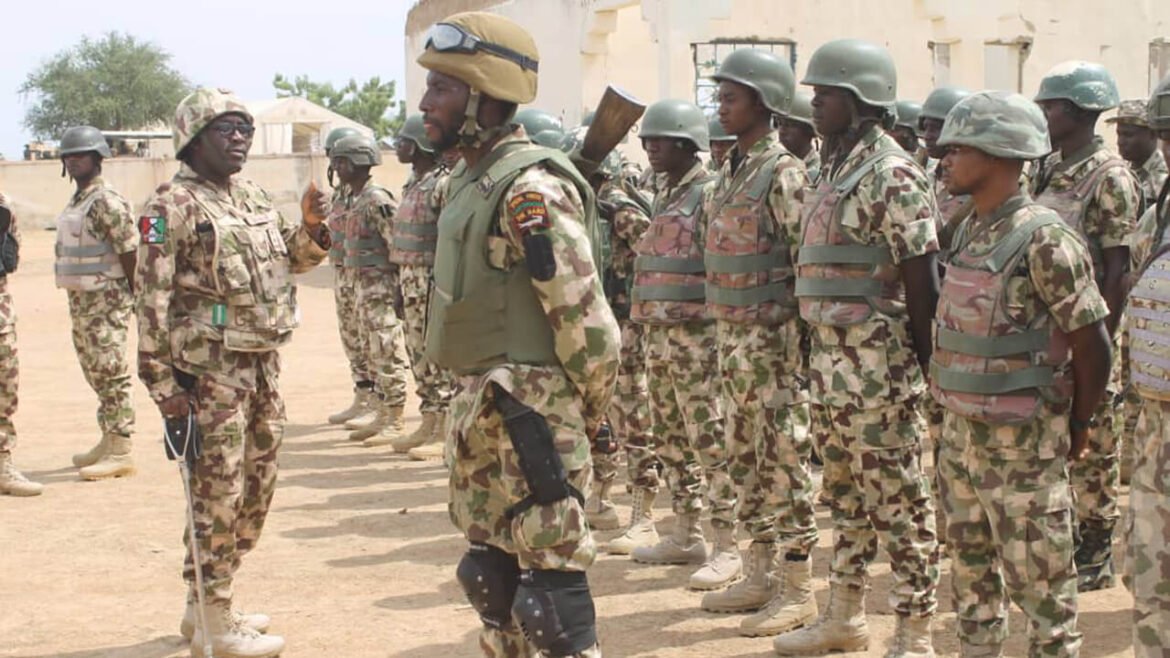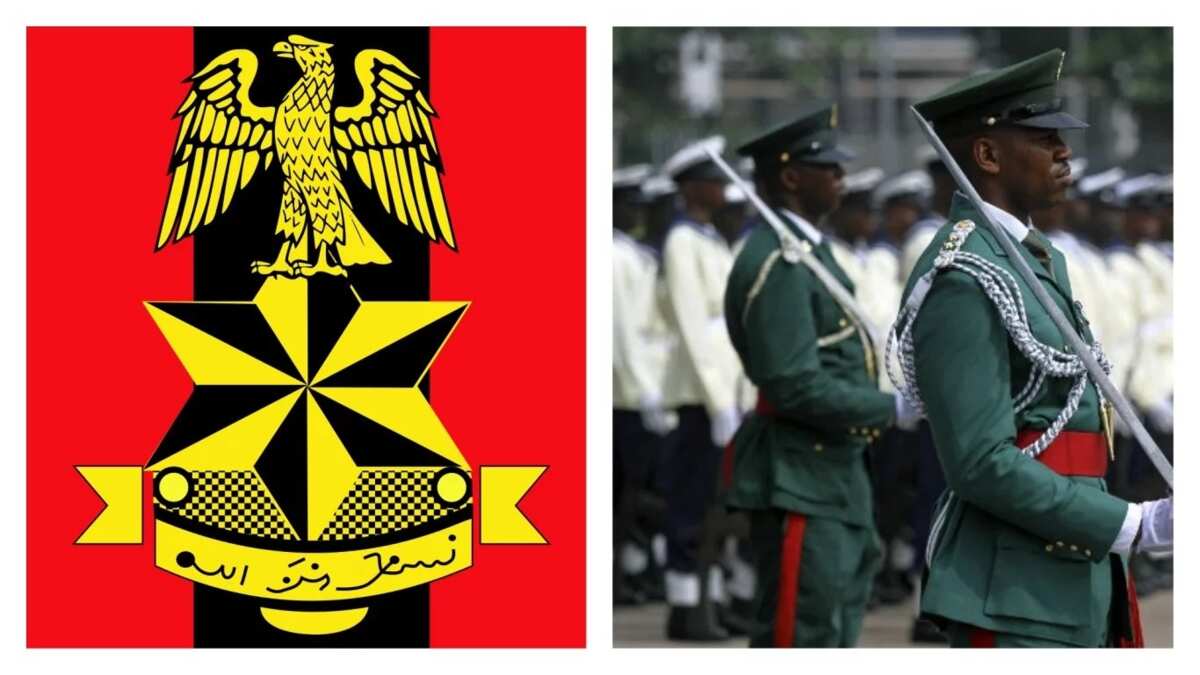Ever wondered how the Nigerian military hierarchy works? Army ranks in Nigeria are more than just titles—they're a structured system that defines authority, responsibility, and respect within the armed forces. The Nigerian Army operates with a well-defined rank structure that mirrors global military traditions while incorporating local nuances. From the humble beginnings of a private soldier to the commanding presence of a general, each rank plays a crucial role in maintaining order and executing missions. Understanding this hierarchy is essential for anyone interested in the military, whether you're a prospective recruit, a history enthusiast, or simply curious about the inner workings of one of Africa's largest armies.
Army ranks in Nigeria aren't just about badges and insignias; they represent years of training, discipline, and dedication. Each rank comes with its own set of expectations and responsibilities, shaping the career trajectory of service members. Whether you're fascinated by the intricacies of military organization or want to understand the leadership dynamics within the Nigerian Army, this article dives deep into the topic.
So buckle up, because we're about to break down the ranks, explore their significance, and uncover what makes the Nigerian military hierarchy unique. Stick around, and by the end of this, you'll have a clearer picture of how these ranks influence the operations and culture of the Nigerian Armed Forces.
Read also:Unlocking The Net Worth Of Pawn Stars Chumlee A Deep Dive
Understanding the Basics of Nigerian Army Ranks
Before we dive into the specifics, let's establish a foundational understanding of army ranks in Nigeria. The Nigerian Army follows a hierarchical structure that divides ranks into two primary categories: enlisted personnel and officers. Enlisted personnel, often referred to as non-commissioned officers (NCOs), make up the backbone of the military, while commissioned officers hold leadership positions and are responsible for strategic decision-making.
Enlisted Ranks: The Backbone of the Nigerian Army
Enlisted ranks in Nigeria start with the lowest-ranking soldier, known as a private. As soldiers progress through the ranks, they earn promotions based on merit, experience, and leadership potential. Here's a quick rundown of the enlisted ranks:
- Private (Pte): The entry-level rank for new recruits, symbolizing the beginning of a military career.
- Corporal (Cpl): A corporal is typically in charge of a small team and acts as a link between officers and enlisted personnel.
- Sergeant (Sgt): Sergeants are experienced leaders who oversee larger groups and ensure operational efficiency.
- Staff Sergeant (SSgt): This rank signifies advanced leadership skills and responsibility for managing complex tasks.
Each enlisted rank builds upon the last, creating a structured path for career advancement within the army.
Commissioned Officers: Leadership in Action
Commissioned officers in the Nigerian Army are responsible for commanding troops and executing missions. These ranks require specialized training and education, often involving attendance at military academies or officer training schools. Here's an overview of the commissioned officer ranks:
- Second Lieutenant (2Lt): The lowest-ranking officer, typically fresh out of training, with limited command responsibilities.
- Lieutenant (Lt): Lieutenants gain more experience and are often tasked with leading platoons or small units.
- Captain (Capt): Captains are seasoned leaders who oversee larger groups and play a key role in tactical operations.
- Major (Maj): Majors are responsible for coordinating operations and ensuring the smooth functioning of battalions.
As officers climb the ranks, their responsibilities grow, culminating in the highest echelons of military leadership.
The Importance of Army Ranks in Nigeria
Army ranks in Nigeria serve multiple purposes beyond mere titles. They establish a clear chain of command, facilitate communication, and promote accountability within the ranks. Understanding the importance of these ranks is crucial for maintaining discipline and cohesion in the military.
Read also:Ingrid Harbaugh Age Unveiling The Life And Journey Of A Remarkable Woman
Chain of Command: Who Reports to Whom?
The chain of command is the backbone of any military organization, and the Nigerian Army is no exception. Each rank is assigned specific responsibilities, and soldiers report to their superiors in a structured manner. This hierarchy ensures that orders are executed efficiently and that accountability is maintained at every level.
Example: A private reports to a corporal, who in turn reports to a sergeant. This chain continues upward through the ranks, ensuring that information flows smoothly and decisions are made quickly.
Leadership and Responsibility
Leadership is a critical component of army ranks in Nigeria. Officers are trained to make tough decisions, inspire their troops, and execute missions under pressure. As soldiers progress through the ranks, they take on increasing levels of responsibility, from leading small teams to commanding entire divisions.
Responsibility doesn't just mean giving orders—it also involves caring for the well-being of subordinates and ensuring their training and development. Officers are expected to lead by example, demonstrating the values and ethics that define the Nigerian Army.
How Are Army Ranks in Nigeria Determined?
The process of determining army ranks in Nigeria involves a combination of factors, including performance, education, and leadership potential. Promotions are not automatic; they require hard work, dedication, and a commitment to excellence. Let's explore the key elements that influence rank progression.
Performance and Merit
Performance is a primary factor in determining promotions within the Nigerian Army. Soldiers are evaluated based on their ability to perform under pressure, their leadership skills, and their commitment to the mission. Those who consistently demonstrate excellence are more likely to advance through the ranks.
TIP: If you're aiming for a promotion, focus on excelling in your current role. Take on additional responsibilities, seek out leadership opportunities, and continuously improve your skills.
Education and Training
Education plays a vital role in the promotion process. Officers, in particular, are required to undergo rigorous training at military academies and specialized schools. This education equips them with the knowledge and skills needed to lead effectively and make informed decisions.
Enlisted personnel also benefit from ongoing training programs that enhance their capabilities and prepare them for higher ranks. Continuous learning is essential for career advancement in the Nigerian Army.
Key Differences Between Nigerian Army Ranks and Global Standards
While the Nigerian Army's rank structure shares similarities with global military traditions, there are notable differences that reflect the country's unique history and culture. Understanding these distinctions can provide valuable insights into the Nigerian military hierarchy.
Cultural Nuances
Culture plays a significant role in shaping the Nigerian Army's rank system. Local traditions and values influence the way ranks are perceived and the expectations placed on service members. For example, respect for authority is deeply ingrained in Nigerian society, and this is reflected in the military's hierarchical structure.
Adaptation to Modern Warfare
The Nigerian Army has adapted its rank structure to meet the demands of modern warfare. With increasing threats from insurgent groups and regional conflicts, the military has placed a greater emphasis on specialized training and technological proficiency. This has led to the creation of new ranks and roles that reflect the evolving nature of military operations.
A Closer Look at the Highest Ranks in the Nigerian Army
At the top of the Nigerian Army's hierarchy are the highest-ranking officers, whose responsibilities include overseeing entire divisions and shaping the military's strategic direction. These ranks require exceptional leadership skills, extensive experience, and a deep understanding of global military dynamics.
General Officers: The Apex of Military Leadership
General officers in the Nigerian Army hold the most prestigious and powerful positions. They are responsible for commanding large-scale operations, developing military strategies, and representing the army at the highest levels of government. Here's a breakdown of the general officer ranks:
- Brigadier General (Brig Gen): Commands brigades and plays a key role in tactical planning.
- Major General (Maj Gen): Oversees divisions and contributes to strategic decision-making.
- Lieutenant General (Lt Gen): Commands corps and advises senior military leaders.
- General (Gen): The highest-ranking officer, responsible for the overall direction of the army.
Each of these ranks demands a unique set of skills and carries immense responsibility. General officers are the face of the Nigerian Army, representing the country on the global stage and ensuring the military's readiness for any challenge.
Challenges Faced by Army Ranks in Nigeria
While army ranks in Nigeria provide a structured framework for military operations, they also come with their own set of challenges. From maintaining discipline to addressing corruption, the Nigerian Army faces numerous obstacles that impact its effectiveness and reputation.
Discipline and Accountability
Discipline is a cornerstone of the Nigerian Army, but maintaining it across all ranks can be challenging. Instances of misconduct, whether by enlisted personnel or officers, can undermine the army's credibility and morale. Ensuring accountability at every level is essential for preserving the integrity of the military hierarchy.
Corruption and Transparency
Corruption remains a significant issue within the Nigerian military, affecting everything from promotions to resource allocation. Efforts to promote transparency and combat corruption are ongoing, with initiatives aimed at restoring trust and ensuring fair treatment for all service members.
Future Developments in Nigerian Army Ranks
As the Nigerian Army continues to evolve, so too will its rank structure. With advancements in technology and changes in global military dynamics, the need for specialized roles and ranks will only increase. Here's a glimpse into what the future might hold:
Specialized Roles for Modern Warfare
The rise of cyber warfare, drone technology, and other cutting-edge advancements requires the creation of new ranks and roles. Soldiers with expertise in these areas will play a crucial role in shaping the future of the Nigerian Army, ensuring its readiness for the challenges of tomorrow.
Emphasis on Diversity and Inclusion
Efforts to promote diversity and inclusion within the ranks will continue, reflecting the changing demographics of Nigerian society. By embracing a more inclusive approach, the army can harness the talents of all its service members and foster a culture of unity and respect.
Conclusion: Embracing the Legacy of Army Ranks in Nigeria
Army ranks in Nigeria are more than just titles—they're a testament to the dedication, discipline, and leadership of the men and women who serve in the armed forces. From the lowest-ranking private to the highest-ranking general, each rank plays a vital role in maintaining the integrity and effectiveness of the Nigerian Army.
As you've learned throughout this article, understanding the intricacies of army ranks in Nigeria is essential for anyone interested in the military. Whether you're a prospective recruit, a history buff, or simply curious about the inner workings of one of Africa's largest armies, this knowledge provides valuable insights into the world of military hierarchy.
Call to Action: Share your thoughts in the comments below! Do you have any questions about army ranks in Nigeria? Or perhaps you'd like to learn more about a specific rank or role. Let us know, and we'll be happy to help. Don't forget to explore our other articles for more fascinating insights into the world of military affairs!
Table of Contents
- Understanding the Basics of Nigerian Army Ranks
- Enlisted Ranks: The Backbone of the Nigerian Army
- Commissioned Officers: Leadership in Action
- The Importance of Army Ranks in Nigeria
- Chain of Command: Who Reports to Whom?
- Leadership and Responsibility
- How Are Army Ranks in Nigeria Determined?
- Performance and Merit
- Education and Training
- Key Differences Between Nigerian Army Ranks and Global Standards
- Cultural Nuances
- Adaptation to Modern Warfare
- A Closer Look at the Highest Ranks in the Nigerian Army
- General Officers: The Apex of Military Leadership
- Challenges Faced by Army Ranks in Nigeria
- Discipline and Accountability
- Corruption and Transparency
- Future Developments in Nigerian Army Ranks
- Specialized Roles for Modern Warfare


